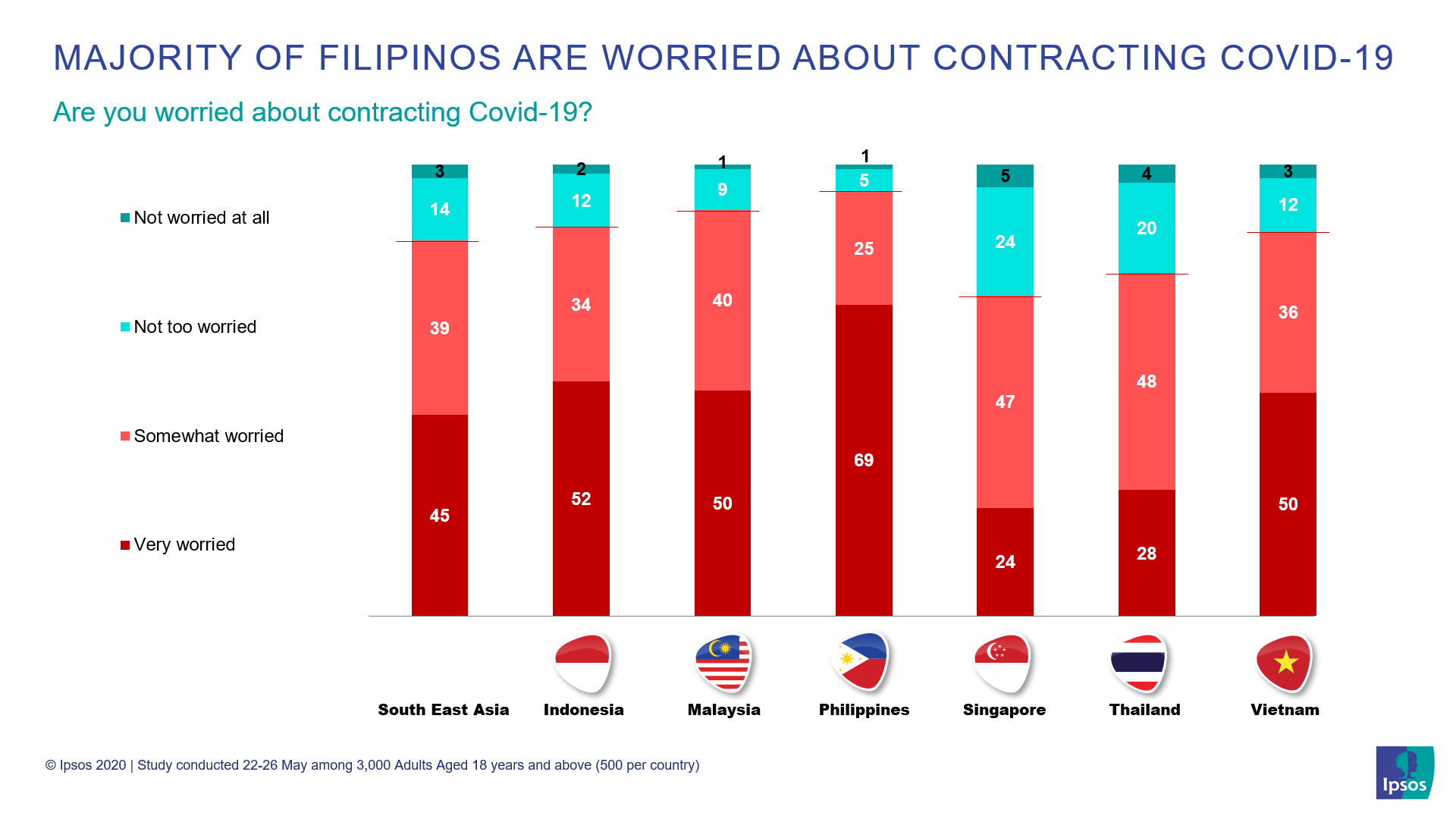Life in the New Normal: 94% of Filipinos are worried about COVID-19
Manila, Philippines–Many Filipinos believe that they have adapted to the restrictions and routine of the new normal. However, 94% express worry that they can contract COVID-19 as found in the recent Ipsos Southeast Asia Study (Indonesia, Malaysia, the Philippines, Singapore, Thailand, and Vietnam) on Living with COVID-19. The survey was conducted prior the end of the Enhanced Community Quarantine (ECQ) in Metro Manila over the period of 22nd to 26th May 2020 among 500 Filipinos.

Filipinos have also experienced significant impact on their household income due to community quarantine measures. 38% claimed that their income is down by more than 50%, the highest among six countries surveyed.
With the fear still imminent, Filipinos think that it will take them some time to revert to their pre-COVID-19 routines. Majority say that they can resume activities such as going to restaurants, visiting family and friends, and using public transportation around August to December this year. Recovery for travel, culture, and fitness industries might be longer as Filipinos most have expressed that they will neither go to cultural events/gatherings nor go to the gym for the remainder of the year. They are also still on a wait-and-see for domestic and international travel.
When asked what Filipinos plan to spend on after movement restrictions, spending on essentials will still continue: food for cooking at home, cleaning products, and personal care items. Filipinos will however minimize expenditures compared before on restaurants and cafes, travel, and cultural activities than before.
During the ECQ, it was apparent that Filipinos engaged in online shopping and deliveries versus physical visits to restaurants, shops/malls. Restrictions in movement have created an opportunity for patronage of brick and mortar shopping alternatives such as online shopping and direct deliveries. Alongside this is the use of alternative payment schemes: mobile wallets and debit/ATM cards.
Marie Lee, Country Manager of Ipsos in the Philippines said, “The COVID-19 pandemic shifted priorities. This is a period of survival for many businesses and consumers. Caution and worry are apparent as Filipinos prioritized spend on essentials and expressed hesitation to going back to previous spending patterns. To offset this, alternative ways to shop and transact business have been explored: purchases made through online shopping and deliveries, payments via online transactions such as mobile wallets. Knowing that there is willingness from consumers to try and adopt new ways and an understanding of the barriers—it is exciting to see how businesses will innovate to bounce back and recoup their losses.”
ABOUT THE STUDY
-
The survey was conducted online between 22nd and 26th May 2020, sample of n=500 Filipino citizens aged 18 and above.
-
Though not reported here, the survey was concurrently conducted in Indonesia, Malaysia, Singapore, Thailand, and Vietnam.



